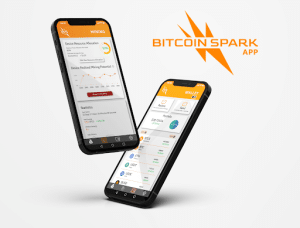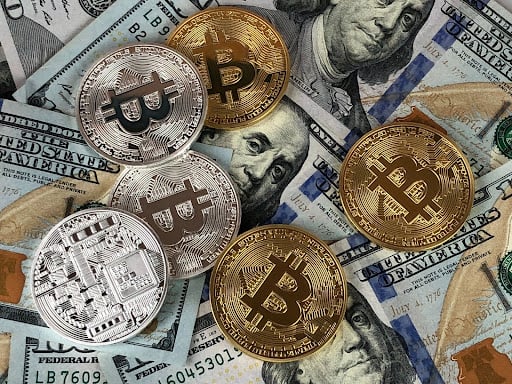Mining is a complex process that crypto ecosystems utilize to validate transactions and add new blocks to their respective ledger networks. Mining is closely associated with the proof-of-work (PoW) consensus model that cryptographic projects like Bitcoin capitalize on. Other projects, including Ethereum, once validated transactions using the PoW method but later reverted to the proof of stake (PoS) validation method. While PoW and PoS remain the leading consensus mechanisms in the crypto world, a new blockchain tech reform called proof-of-process has emerged through Bitcoin Spark, with the potential to disrupt these two processes.
Ethereum and Bitcoin Mining are Outdated
Bitcoin uses the PoW consensus model to verify transactions on its network. The project involves using sophisticated computers and mining equipment that consume a lot of electrical energy to solve complex mathematical algorithms. In exchange, these computers earn rewards in the form of bitcoin (BTC). The participants who verify these transactions on the network are called miners. The mining process consumes a lot of energy and is typically expensive to set up and maintain the ‘mines.’
On the other hand, Ethereum uses PoS to validate transactions on its network. Participants lock their Ethereum (ETH) to gain validation rights that yield ETH in return. Ethereum staking may occur in two ways: solo staking and pooled staking. For solo staking, participants need to deposit a minimum of 32 ETH. The other alternative is pooled staking, where investors can stake on large crypto exchanges such as Coinbase and Binance.
Bitcoin Spark is revolutionizing Cryptocurrency Mining
Bitcoin Spark is a new decentralized project that leverages blockchain technology to revolutionize the crypto arena. The project is a major Bitcoin hard fork upgrade that solves the major challenges that the Bitcoin network faces. The project uses a proof-of-process (PoP) consensus model to verify transactions and maintain the network’s operations. PoP combines the PoW mining method, the PoS validation method, and a special complex mathematical blueprint that undermines linear rewards in the form of BTCS tokens that are attributed to the computing power of mining devices or staking sizes. BTCS is the native token of Bitcoin Spark’s ecology.
The blueprint algorithm is designed to maintain a standard in reward distribution for the validators and miners in the ecosystem. This way, there is a fair distribution of BTCS earnings regardless of the staking size or the type of mining device used. The Bitcoin Spark team is developing remote mining programs for Windows, Mac OS, iOS, as well as Android that will allow users to mine in the comfort of their homes.
The rewards will be calculated from a direct comparison of the stake an individual has locked as well as mining remotely done on the network in various devices of different computing power. In other words, this complex statement translates to: the higher the staking size and the more mining, the more the rewards an individual will get, but in a non-linear way. More rewards will be allocated to more work done by miners than larger stake sizes.

Like the first-generation Bitcoin, Bitcoin Spark has a maximum supply of 21 million, from which 16.45 million have been allocated to mining rewards that will be distributed to users in more than 120 years. The remaining 4.55 million will be the launch supply, where 4 million BTCS have been delegated to the Initial Coin Offering (ICO) set to begin on 1st August. During the ICO’s phase 1 duration, Bitcoin Spark will distribute BTCS tokens to interested parties at a discounted price of $1.50. Moreover, each purchase will automatically qualify for a 20% bonus from the team as a token of appreciation to early investors.
Out of the launch supply, 500,000 BTCS tokens have been allocated to liquidity pools and exchanges ahead of the project’s network launch. The remaining 50,000 tokens will be awarded to the team behind the project’s development.
Bitcoin Spark’s official launch price is $10. However, enterprising investors can purchase BTCS tokens at a discounted price of as little as $1.50 during the project’s ICO phases. Once the project is fully launched, its tokenomics, utility, and functionalities support a steady price increase that will heavily reward early investors. Can you imagine purchasing Bitcoin at just $1? How much of it would you buy knowing its future prices will hit headlines?
For more information:
Website: https://bitcoinspark.org/
Buy BTCS: https://network.bitcoinspark.org/register
Subscribe to our daily newsletter!
No spam, no lies, only insights. You can unsubscribe at any time.




